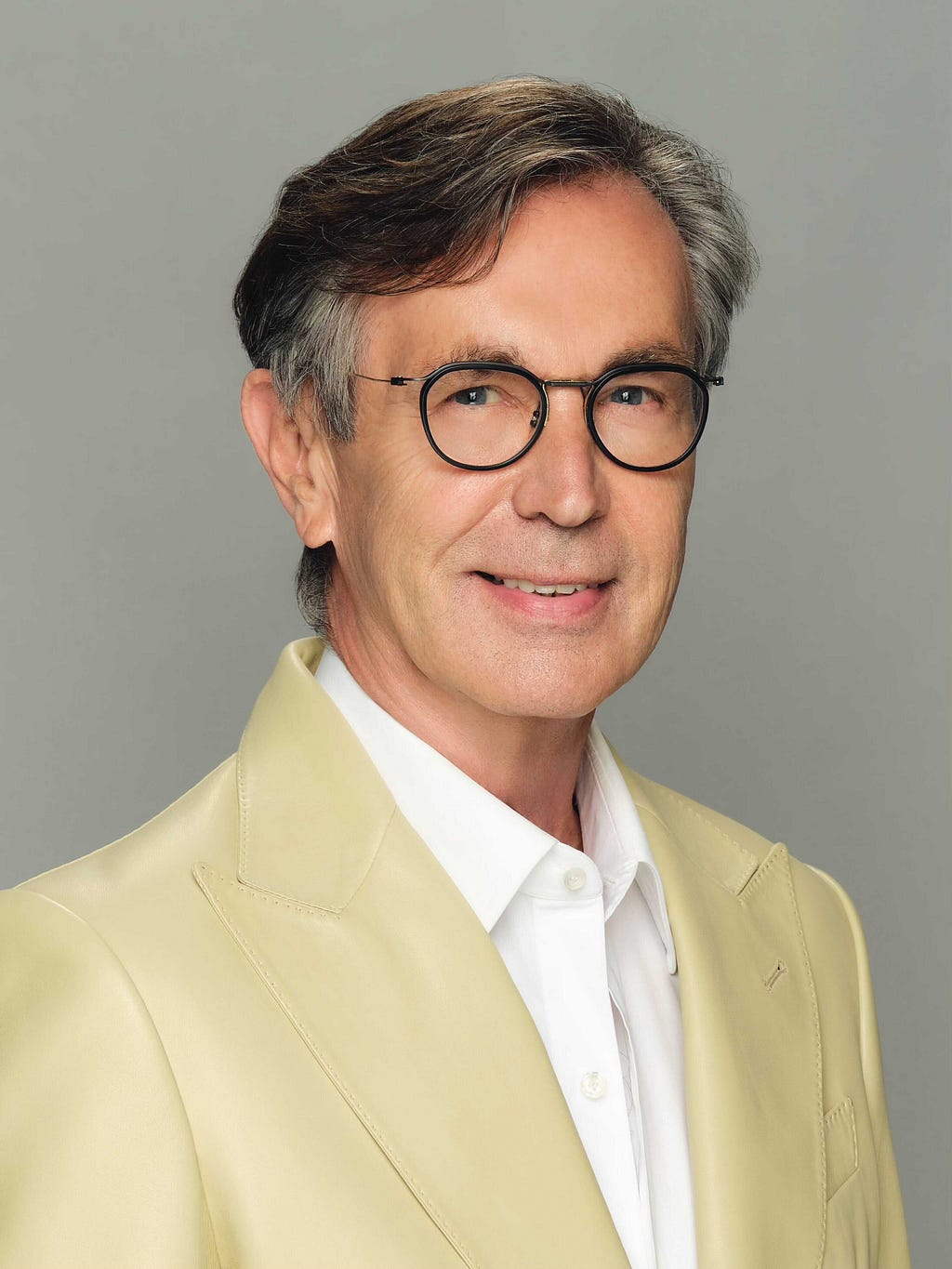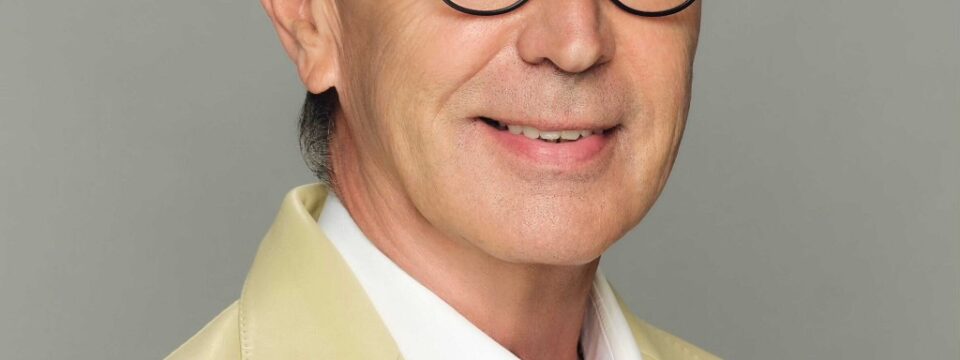
Learn quickly from mistakes and move on. In fact, just try to learn quickly. At CNN I first produced a current events show that required me to digest the entire history and the current situation in the Middle East in about 12 hours. This business is a great way to grow your brain.
As a part of our series called “5 Things I Wish Someone Told Me When I First Became A Filmmaker”, I had the distinct pleasure of interviewing Randy Douthit.
Randy Douthit grew up in an Oregon farming community with his grandparents.
By the time he turned nine years old, he was riding around the neighborhood on his bike selling 10-cent tickets to variety shows he “produced” in the barn.
He became a television director at age 23 at local station KGW in Portland, Oregon, where he directed newscasts, public affairs programs, commercials, and remote broadcasts.
He was transferred to Seattle in 1975 to sister station KING-TV to direct the Peabody Award-winning children’s program How Come, as well as news and other children’s programs, in addition to commercials.
He later executive produced the morning talk show, Seattle Today, turning the program around with a promotional campaign that multiplied viewers tenfold, and transforming the show into the highest rated morning show in the country.
Randy later joined CNN, where he produced feature pieces and a prime time news/talk show. He executive produced and directed Crossfire, which became the number one rated show on CNN, and then Capital Gang. Both shows were Cable Ace winners. Randy also worked on primetime specials with Presidents George H.W. Bush, Ronald Reagan, Jimmy Carter, and Richard Nixon. He then conceived, executive produced, and directed the Peabody Award winning primetime show, Larry King Live.
Randy then produced two talk show pilots and a 13 week talk show series as part of an overall deal with Warner Bros/Telepictures in Las Vegas. He subsequently worked as Executive Vice President of Quincy Jones Entertainment, where he oversaw development of the primetime sitcom sensation Fresh Prince of Bel Air. He also produced a weekly public affairs program with the Rev. Jesse Jackson.
Randy later produced a Food Network telethon for Meals on Wheels and then went to work for NBC legend Brandon Tartikoff, where he created the Mark Walberg Show in New York, which ran for a successful season.
Randy then went on to become a part of the successful launch of Judge Judy, which went on to win four Emmys. He also executive produced the successful Judge Joe Brown court show for 2 seasons. Randy then went on to executive produce 3 seasons of the Judge Judy-created hit Hot Bench, a twice Emmy-nominated series now in its 9th season.
Randy now works as executive producer and director of Judy Justice, which can be seen on Amazon Freevee. The Emmy Award winner is currently in its second season of production.
Thank you so much for joining us in this interview series! Our readers would love to get to know you a bit better. Can you tell us a bit of the ‘backstory’ of how you grew up?
I spent most of my childhood on my grandparents’ farm in Oregon. Even as a kid, I knew I wanted to work in television. I used to host variety shows in their barn. And they weren’t free, either. I charged admission!
Can you share a story with us about what brought you to this specific career path?
I was working as a groundskeeper in an Oregon television station. I was always hanging around, looking for extra stuff to do. I got my chance. I ended up being offered a job at that station while I was still in college.
Can you share the funniest or most interesting story that occurred to you in the course of your filmmaking career?
I work in television. I’ve had the chance to work with some of the most fascinating people on the planet. When I worked on Larry King’s show I met everyone from politicians — Presidents, world leaders and the like — to cultural icons like Frank Sinatra and Jerry Seinfeld.
Who are some of the most interesting people you have interacted with? What was that like? Do you have any stories?
I’ve been really lucky in my career and I feel particularly lucky to be working with Judy Sheindlin. She is authentic and there is real value in that — not just in terms of what you see on television but also in what you get as a person. There is a depth to her humanity and it’s why so many people relate to her. It comes across on television and it’s real. People love authenticity.
None of us are able to achieve success without some help along the way. Is there a particular person who you are grateful towards who helped get you to where you are? Can you share a story about that?
Tom Craven. He worked in local television and believed you can do anything you choose to. Tom taught me a lot of good stuff, like you can cover a live broadcast with no worries, as long as you don’t worry!
Can you please give us your favorite “Life Lesson Quote”? Can you share how that was relevant to you in your life?
Everything comes to him who hustles while he waits. — Thomas Edison
So much of this business is waiting on people to make decisions — to green light a project, a budget or something else. What you have to remember is that while you’re waiting on one thing, you can make progress on something else. It also makes the waiting easier.
I am very interested in diversity in the entertainment industry. Can you share three reasons with our readers about why you think it’s important to have diversity represented in film and television? How can that potentially affect our culture?
The best television is television that reflects the world we live in. That’s what makes television feel real and relevant to people. More diversity makes for better quality.
What are some of the most interesting or exciting projects you are working on now?
It’s been incredible working on Judy Justice in streaming. It’s an exciting new format that allows viewers to see more of what they love about Judy.
Which aspect of your work makes you most proud? Can you explain or give a story?
I’m particularly proud of directing and producing Judy Justice. She makes justice real and effective and it makes a difference to people in their lives.
Ok super. Here is the main question of our interview. What are your “5 things I wish someone told me when I first started” and why. Please share a story or example for each.
- Some mistakes are inevitable.
- Learn quickly from mistakes and move on. In fact, just try to learn quickly. At CNN I first produced a current events show that required me to digest the entire history and the current situation in the Middle East in about 12 hours. This business is a great way to grow your brain.
- In a world full of negatives and negativity, focus on people and things who inspire you and your creativity.
- Keep things simple except when you can’t. When you can’t, simplify them.
- Enjoy this life — there is something to gain and to learn even from the moments we wish hadn’t happened.
When you create a film, which stakeholders have the greatest impact on the artistic and cinematic choices you make? Is it the viewers, the critics, the financiers, or your own personal artistic vision? Can you share a story with us or give an example about what you mean?
I make television — and we record and tell true stories as they unfold in Judy’s courtroom. My job is to capture that and to deliver it to viewers in the way that maximizes the impact of those stories.
You are a person of great influence. If you could start a movement that would bring the most amount of good to the most amount of people, what would that be? You never know what your idea can trigger. 🙂
More people need better access to a better education. And everyone needs access to basic lessons in civics. We’ve really become a no-holds-barred society and we need to pull that back.
We are very blessed that some of the biggest names in Business, VC funding, Sports, and Entertainment read this column. Is there a person in the world, or in the US whom you would love to have a private breakfast or lunch with, and why? He or she might see this. 🙂
President Obama.
This was very meaningful, thank you so much! We wish you continued success!
Randy Douthit: 5 Things I Wish Someone Told Me When I First Became A Filmmaker was originally published in Authority Magazine on Medium, where people are continuing the conversation by highlighting and responding to this story.
